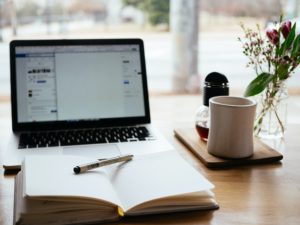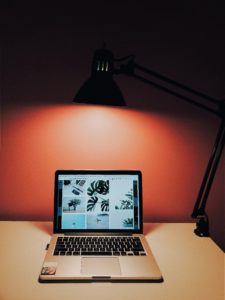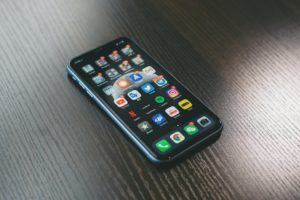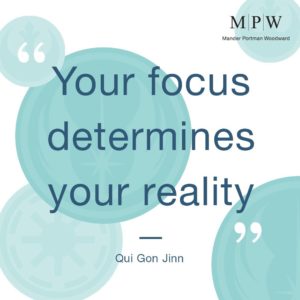Creating a Productive Study Space
Your study environment is critical to learning and retaining information. Here are some hints, tips, apps, and hacks to help you create a productive study space at home.
Study Space
It is important that the space you choose is dedicated to studying and not associated with other activities – if you study on your bed, you are likely to feel sleepy by association. The ideal setup is a desk and desk chair, but if you do not have or cannot fit a desk in, a table or flat surface that you can comfortably sit at is as good.

Now that you have a seat and flat surface to work at, time to look at the environment you will be studying in.
Lighting
Insufficient lighting can cause you to strain your eyes, leading to headaches and an unproductive study session. Natural light is the best choice for lighting your study space and is proven to boost your serotonin , so try to position your desk near a window (and open the blinds). That said, sometimes (especially in winter or just before homework deadlines) studying continues after the sun sets, so some artificial light is also needed. An adjustable desk lamp is a perfect solution for lighting those late-night study sessions, without keeping the house awake.

If you have a few options around the house where you can place your desk in natural light, try to avoid a thoroughfare such as a hallway or a kitchen where other members of your household are likely to frequent.
Sound
If you are lucky enough to you have a study space to yourself without noises or you do have to contend with distracting noises (i.e. a TV, washing machine, pets, family members etc., then you may want to consider adding some sounds to your learning environment. Consider a white noise playlist on Soundcloud or using Noisli to mask the sounds and help you concentrate. Avoid playing music where you have the choice to change the song as this can often become too distracting.
Distractions
It is easy to procrastinate and become distracted when studying at home, but there are a few things you can do to maximise your focus and have a productive study session.
Whether it is a text message, social media notification, or a game, your phone is often the biggest distraction when studying.

Here are a few ways you can minimise your phone use during study time:
- Reduce your need to look at your phone by using a clock or watch to check the time – checking the time is often the first step towards entering a rabbit hole of memes on social media instead of studying.
- Use an app to restrict access or limit the time you spend on specific websites and apps.
- SelfControl, for macOS, lets you block your own access to distracting websites, your mail servers, or anything else on the Internet.
- Freedom, compatible with most devices and operating systems, allows you to set a schedule and block across all your devices.
Even clutter on your desk can become a distraction, try to limit the items on your desk to be just the essentials needed to study… but also, make sure you have all the supplies you need, as procrastination often comes in the form of ‘just grabbing a…’.
Supplies
Avoid breaking your study concentration with ‘just a grabbing a…’ moments and ensure you have everything you need to study. Here are a few items you might need to get you through a study session:
- Stationery
- Charger (and an extension lead if needed)
- Calculator (avoid using your phone)
- Flashcards
- Water
- Snacks (fruit and nuts)
- Avoid fat-filled and sugar-laden foods and drinks as these quickly increase your dopamine levels, offering a short-term boost of energy followed by a ‘crash’ when dopamine levels plummet.

Motivation
Now you have the perfect study space, lighting, and sound, as well as minimal distractions and plenty of supplies, it is time to get motivated! Start by writing out the tasks you plan to achieve and setting a realistic goal for each study session. Whether that is in the form of a word count on an essay, pages read in a book or questions completed in a mock paper, clear goals keep you focused and motivated.
Use the Pomodoro technique to help you keep focus during revision studies (no tomatoes required), with 25 minutes of study followed by 5-minute breaks – the Focus Booster app takes care of the timing for this approach for you.
Reward yourself with each goal/milestone you achieve, even if the reward is a snack (from your supplies), something a little bit tastier (chocolate) for the larger milestones, or a quick 5-minute catch-up on social media.
During longer study sessions, make sure you venture outside for some fresh air and exercise. Exercise produces endorphins that improve your mood and boost your motivation – time away from your desk can make you more productive when you return.
Inspirational quotes can also help energise you during your studies. Write a couple of quotes down on sticky notes and place within your study space, so you have the words of wisdom on hand when you need them most. Check out #MotivationMonday on Instagram for some inspiration.

It can be hard to find motivation for topics of study that you find harder, so use the ‘low effort’ hack and start with easier tasks to build up your momentum and confidence. It may also be worth considering external help with your studies for these more difficult topics – at MPW (Mander Portman Woodward), we offer Easter Revision courses ahead of A-Level and GCSE exams as well as Extra Tuition on a one-to-one basis – available in London, Birmingham and Cambridge.

